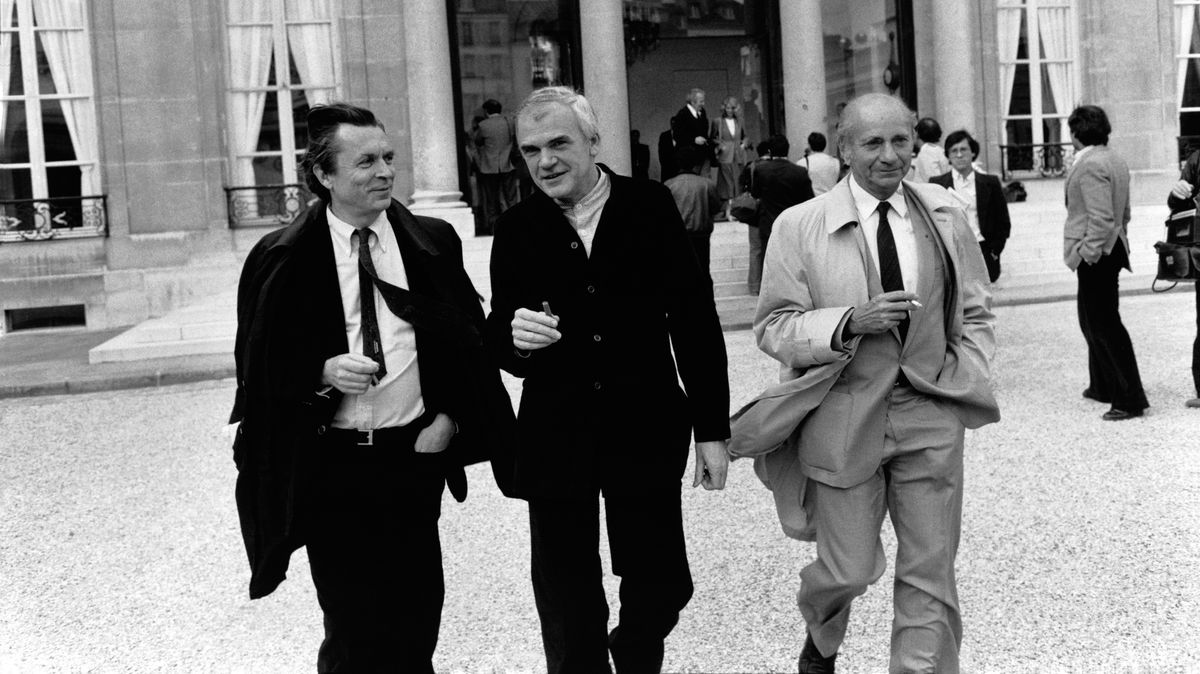The news of the death of the Czech writer was met with an extraordinary reception, especially in France, where Milan Kundera has lived since 1975 and in 1981 he received French citizenship.
“Novelist of Human Existence Dies,” read the headline article published by Le Monde. “Kundera called himself a novelist, not a writer. In the fullest sense, he lent himself to the art of the novel, which he understood as a means of general knowledge, an aesthetic, not a theoretical, real ‘pust to think’,” wrote the obituary writer, professor of literature. Martine Boyerová-Weinmannová.
“Death of Milan Kundera, the giant of French literature,” announced the death of the novelist Le Figaro. “Kundera, world famous for his works translated into forty languages, was in many ways an enigmatic writer,” the newspaper recalled. Figaro further mentions that in 2011, Kundera saw the full publication of his work in the prestigious Pléiade edition of French publisher Gallimard. In the world of literature, this is an extraordinary honor that only a handful of writers have achieved.
Spanish newspaper El País recalled a quote from an interview with a Czech-French writer from 1982. “I did not feel comfortable in the role of a dissident. I did not like reducing literature and art to political reading. The word dissident meant that one presupposed a thesis-based literature, and if there was one thing I hate, it is thesis-based literature. What I am interested in is its aesthetic value. For me, pro-communist or anti-communist literature is the same. That’s why I don’t like to see myself as a dissident,” Kundera said at the time.
original message
The writer Milan Kundera died at the age of 94, the information was confirmed to ČTK by the spokesperson for the Provincial Library of Moravia in Brno, Anna Mrázová. Kundera wrote several world-famous books, which are among the most widely translated Czech works.
“In his widely translated novels, philosophical reflections are mixed with political criticism and erotic dreams. The son of a concert pianist describes his novels as polyphonic symphonies, works that blend different tones and styles—fables, essays, autobiographical reflections—and explore the nature of identity. or death,” Kunder’s obituary was in The Washington Post.
The author’s death also dominated the homepage on Wednesday morning from the Italian newspaper Corriere della Sera. “Kundera was the heir to the great Central European literary culture, from which he was able to take over and rework such themes as the feeling of uncertainty and contingency in human life, but at the same time he carried the spirit of the 18th century. Writer of the Enlightenment (he was admirer of Denis Diderot). and newspaper writer. Antonio Carioti.
The Guardian from England alludes to Kunder’s complicated relationship with the media. “In 2008, Kundera broke his media silence when he vehemently denied ČTK that he had told a Czech pilot working for American intelligence more than fifty years ago. He said in a statement that he was ‘absolutely shocked’ by the claim and referred to the allegations as ‘author’s murder,'” the British daily recalled the case, which was later reported by the weekly Respekt.
“An outcast from the Communist Party who became a world literary star thanks to biting, sexually charged novels that captured the suffocating absurdity of life in a workers’ paradise in his native Czechoslovakia,” features daily Kundera The New York Times.
Photos from the life of Milan Kundera:
Photo: Louis MONIER/Gamma-Rapho, Getty Images

“Tv nerd. Passionate food specialist. Travel practitioner. Web guru. Hardcore zombieaholic. Unapologetic music fanatic.”







